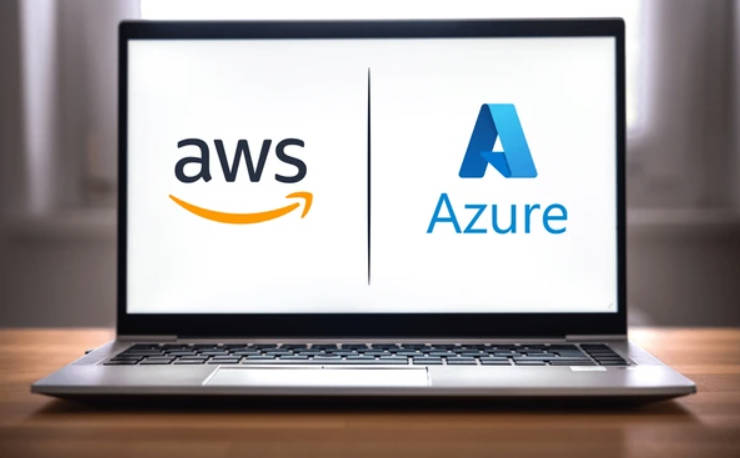Important Information
This website is managed by Ultima Markets’ international entities, and it’s important to emphasise that they are not subject to regulation by the FCA in the UK. Therefore, you must understand that you will not have the FCA’s protection when investing through this website – for example:
- You will not be guaranteed Negative Balance Protection
- You will not be protected by FCA’s leverage restrictions
- You will not have the right to settle disputes via the Financial Ombudsman Service (FOS)
- You will not be protected by Financial Services Compensation Scheme (FSCS)
- Any monies deposited will not be afforded the protection required under the FCA Client Assets Sourcebook. The level of protection for your funds will be determined by the regulations of the relevant local regulator.
Note: UK clients are kindly invited to visit https://www.ultima-markets.co.uk/. Ultima Markets UK expects to begin onboarding UK clients in accordance with FCA regulatory requirements in 2026.
If you would like to proceed and visit this website, you acknowledge and confirm the following:
- 1.The website is owned by Ultima Markets’ international entities and not by Ultima Markets UK Ltd, which is regulated by the FCA.
- 2.Ultima Markets Limited, or any of the Ultima Markets international entities, are neither based in the UK nor licensed by the FCA.
- 3.You are accessing the website at your own initiative and have not been solicited by Ultima Markets Limited in any way.
- 4.Investing through this website does not grant you the protections provided by the FCA.
- 5.Should you choose to invest through this website or with any of the international Ultima Markets entities, you will be subject to the rules and regulations of the relevant international regulatory authorities, not the FCA.
Ultima Markets wants to make it clear that we are duly licensed and authorised to offer the services and financial derivative products listed on our website. Individuals accessing this website and registering a trading account do so entirely of their own volition and without prior solicitation.
By confirming your decision to proceed with entering the website, you hereby affirm that this decision was solely initiated by you, and no solicitation has been made by any Ultima Markets entity.
I confirm my intention to proceed and enter this website Please direct me to the website operated by Ultima Markets , regulated by the FCA in the United Kingdom
Ultima Markets App
Trade Anytime, Anywhere
Amazon Stock Price Prediction 2030 Forecast

Amazon (NASDAQ: AMZN) has evolved into much more than an online retail giant, and the question of Amazon stock price prediction 2030 is now at the center of investor attention.
Today, its valuation surpasses $2.3 trillion, and its long-term trajectory hinges on two high-margin powerhouses: Amazon Web Services (AWS) and its rapidly expanding advertising business. As we look toward 2030, can Amazon truly double in value, or even possibly reach $5 trillion?
In this article, we break down the outlook for Amazon’s stock price prediction in 2030, examining the growth drivers, valuation models, and how Amazon measures up against tough competition in cloud computing, digital advertising, and global e-commerce.
Amazon’s Growth Engines: AWS and Advertising at the Core
Most people still think of Amazon as a shopping site, but its most powerful profit drivers are very different. Amazon Web Services (AWS), the company’s cloud division, and its digital advertising unit generate the lion’s share of operating income.
In Q1 2025, AWS revenue rose 17% year over year, delivering a 39% operating margin. Though AWS represents less than a fifth of revenue, it contributed around 60% of operating profit. Advertising was even faster-growing, climbing 18% year over year to $13.9 billion. Margins are not disclosed, but analysts estimate them in the 30–40% range, comparable to Meta.
These two segments, not retail, will likely determine where the Amazon stock price prediction 2030 lands.

The $5 Trillion Valuation Potential
A popular thesis argues that Amazon could reach a $5 trillion valuation by 2030. At a 25× operating income multiple, that would require roughly $200 billion in operating income. If AWS and advertising compound around 15% annually, they could deliver about $147 billion by themselves. The rest of e-commerce, subscriptions, and logistics would need to provide just another $53 billion.
This math suggests a stock price around $431 per share in a bullish scenario, more than a 100% gain from 2025 levels. This number strengthens the Amazon share price 2030 prediction for investors betting on long-term growth.
EPS and P/E-Based Price Scenarios
Another way to project Amazon’s 2030 stock price is through earnings per share (EPS) growth and valuation multiples.
- Wall Street Analysts expect EPS of $8.93 in 2027.
- Assuming 20% annual growth, EPS would reach about $18.52 in 2031.
- To price 2030, analysts apply the 2031 EPS to different forward P/E multiples.
By applying forward P/E ratios between 26 and 33× yields a variety of price scenarios:
| Forward P/E Multiple | EPS (2031 estimate: $18.52) | Stock Price 2030 |
| 26× | $18.52 | $481 |
| 28× | $18.52 | $518 |
| 30× | $18.52 | $555 |
| 33× | $18.52 | $611 |
Based on this model, the Amazon stock price prediction 2030 range is $481–$611 per share, representing nearly a doubling from current levels around $270.
The Competitive Landscape: Cloud, Ads, and E-Commerce Rivals
Amazon’s path to 2030 won’t be without challenges, especially as competition intensifies in its core profit engines.
In cloud computing, AWS still leads with about 30–31% global market share, but rivals are closing the gap. Microsoft Azure holds around 20%, while Google Cloud sits at roughly 13%. Growth trends tell an even sharper story: in Q2 2025, Google Cloud expanded 32% year over year, and Azure also grew faster than AWS, which posted 17% growth. This divergence signals mounting pressure on Amazon’s cloud dominance.
In e-commerce, Amazon continues to dominate the U.S. market, controlling about 37.6% of online sales. Its nearest rivals are far behind. Walmart with 6.4%, Apple with 3.6%, and eBay with 3%. Globally, however, Alibaba surpasses Amazon in gross merchandise volume (GMV), holding close to 23% versus Amazon’s 12%, highlighting where Amazon leads in profitability but not scale.
In digital advertising, Amazon’s rapidly growing unit competes with heavyweights like Google and Meta. While not yet the biggest, Amazon’s advantage lies in its shopper-behavior data and retail environment, which allow advertisers to target consumers at the point of purchase. Over time, this could reshape how budgets are allocated across the ad ecosystem.

Amazon Stock Price Prediction 2030: Bull vs Bear Outcomes
- Bull Case: $431–$611 per share if AWS and advertising scale aggressively, and EPS growth sustains 20% annually.
- Base Case: $250–$350 per share if growth moderates but Amazon maintains profitability.
- Bear Case: Below $150 per share if earnings growth disappoints or valuation multiples compress further.
Final Thoughts on Amazon Stock Price Prediction 2030
Pulling together the facts, Amazon stock in 2030 could trade between $481 and $611 per share, depending on EPS growth and valuation multiples. In more aggressive cases, it could even reach the $5 trillion milestone.
The future will hinge on whether AWS maintains growth against rivals, whether advertising continues to scale profitably, and whether Amazon’s massive AI and logistics investments deliver returns.
But one thing is for certain: the Amazon stock price prediction 2030 points to significant upside potential, making it one of the most important long-term stories in global markets.
Disclaimer: This content is provided for informational purposes only and does not constitute, and should not be construed as, financial, investment, or other professional advice. No statement or opinion contained here in should be considered a recommendation by Ultima Markets or the author regarding any specific investment product, strategy, or transaction. Readers are advised not to rely solely on this material when making investment decisions and should seek independent advice where appropriate.












